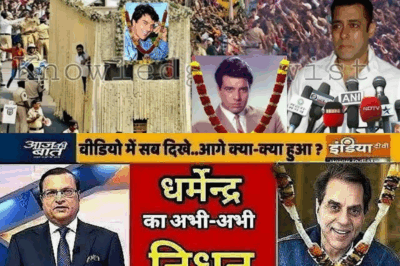Ceasefire Declared: Israel and Iran End 12-Day War After Trump’s Announcement
In a dramatic turn of events, Israel and Iran have reportedly agreed to a ceasefire, bringing an abrupt end to a 12-day conflict that threatened to escalate into a regional war. The announcement was made public by former U.S. President Donald Trump, who claimed a leading role in brokering the agreement. While the world watches closely, questions remain about the ceasefire’s durability and the next steps for both nations.

A Conflict with Global Implications
The conflict, which erupted two weeks ago, saw intense exchanges of missile strikes, cyberattacks, and military skirmishes between Israel and Iran. Civilian casualties mounted on both sides, and the risk of drawing in other regional powers alarmed the international community. Oil prices surged, and diplomatic channels were flooded with urgent calls for de-escalation.
Trump Steps In
On Tuesday, Donald Trump announced via social media and at a press conference that Israel and Iran had agreed to a ceasefire. According to Trump, the deal involves a two-phase 24-hour truce: Iran would begin a 12-hour ceasefire, followed by Israel implementing its own 12-hour halt to hostilities. After the 24-hour period, the ceasefire would become official, effectively ending the so-called “12 Day War”.
Trump took credit for the breakthrough, stating, “Thanks to our efforts, peace is now within reach. Both sides have agreed to stop the bloodshed and give diplomacy a chance.” He added that the United States would continue to monitor the situation and assist in ensuring both parties uphold their commitments.

Mixed Reactions from Both Sides
While Trump’s announcement generated headlines worldwide, reactions from Israeli and Iranian officials were more cautious. Iranian representatives stated that they would halt attacks if Israel ceased what they called “illegal aggression.” Meanwhile, Israeli sources have yet to issue a formal statement confirming the ceasefire, instead emphasizing the need for security guarantees and international oversight.
Analysts note that the lack of immediate official confirmation from both governments leaves uncertainty about the ceasefire’s implementation. However, early reports indicate a significant reduction in military activity along the Israel-Iran front since the announcement.
International Response
The international community has largely welcomed the ceasefire news. The United Nations Secretary-General called it “a crucial step toward restoring peace and stability in the Middle East.” European leaders urged both sides to use the opportunity to return to diplomatic negotiations and address the root causes of the conflict.
In Washington, reactions were mixed. While some praised Trump’s intervention, others questioned the long-term viability of a ceasefire reached without broader regional engagement.
Challenges Ahead
Despite the ceasefire, challenges remain. Both nations have deep-seated mistrust, and their history of proxy conflicts and direct confrontations complicates any peace process. Observers warn that any violation of the truce could quickly reignite hostilities.
Furthermore, the humanitarian situation in affected areas remains dire, with thousands displaced and infrastructure heavily damaged. Aid agencies have called for immediate access to deliver relief supplies and medical assistance.

Conclusion
The Israel-Iran ceasefire, announced after 12 days of intense warfare, offers a glimmer of hope for a region long plagued by conflict. While Trump’s role in brokering the deal has drawn both praise and skepticism, the world now waits to see if the truce will hold and whether it can serve as a foundation for lasting peace.
For now, the guns have fallen silent, and diplomats are hard at work. The coming days will test the resolve of both nations and the effectiveness of international mediation in preventing a return to violence.
News
Drama Explodes Online 🎥: ‘Drone Chor’ Mastermind Finally Caught — Truth Behind The Thefts Stuns Nation!
Drone Theft Mastermind Caught! The Shocking Truth Behind India’s Viral ‘Drone Chor’ Finally Exposed In a sensational twist that has…
Comedy World Shattered 😭: Kapil Sharma Suffers Stroke, Bharti Singh Collapses in Tears at Hospital!
Comedy World Shattered 😭: Kapil Sharma Suffers Stroke, Bharti Singh Collapses in Tears at Hospital! Kapil Sharma Hospitalized After Low…
Bollywood Icon Dharmendra: Rumors of Death Unfounded, Family and Fans Urged to Pray for His Recovery
Bollywood Icon Dharmendra: Rumors of Death Unfounded, Family and Fans Urged to Pray for His Recovery Introduction In the ever-buzzing…
Shock in Comedy World : Kapil Sharma Suffers Stroke — Bharti Singh Breaks Down Crying at Hospital!
Sad News: Bharti Singh brokedown as Kapil Sharma admitted to Hospitaafter Stroke! Kapil Sharma Hospitalized After Low Blood Pressure Scare:…
Today Bollywood King Dharmendra passed away..? Dharmendra has died, see full information
Bollywood Icon Dharmendra: Rumors of Death Unfounded, Family and Fans Urged to Pray for His Recovery Introduction In the ever-buzzing…
Bollywood King Dharmendra has passed away today. See the full details about Dharmendra’s death.
Bollywood King Dharmendra has passed away today. See the full details about Dharmendra’s death. In the constantly active realm of…
End of content
No more pages to load







